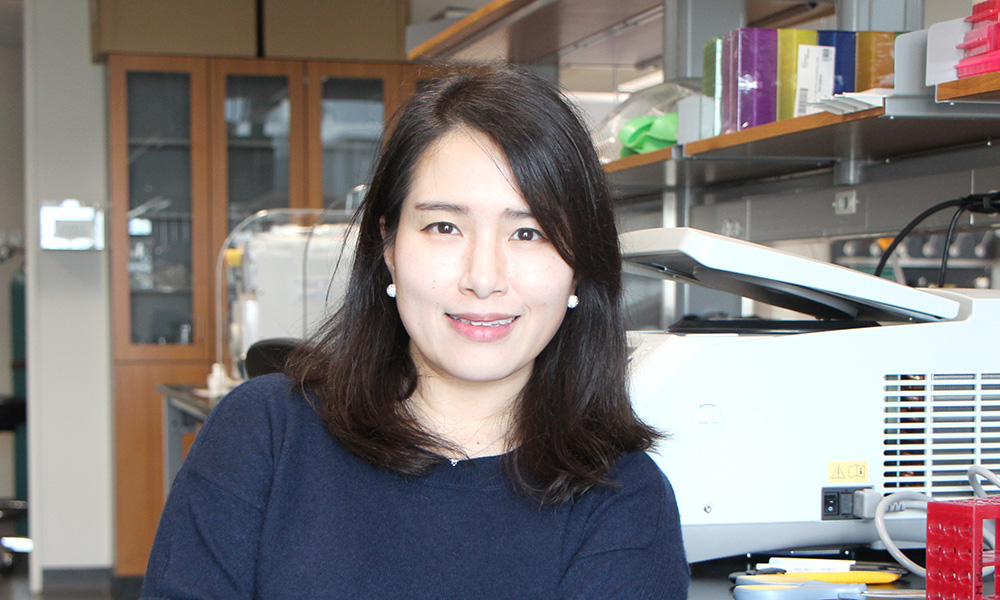MCB faculty Jeeyun Chung has been chosen as a recipient of the Star-Friedman Challenge Award for Promising Scientific Research. The university-wide competition awards funding to faculty who propose exciting new directions for their research efforts. Chung’s project was one of seven awarded funding this year.
“I am truly grateful to the founders and funders of the Star-Friedman Challenge Award for their generous research support,” Chung says. “Additionally, I extend my gratitude to the reviewers who recognized the potential of our high-risk, high-reward project, uncovering the unexpected roles of fat regulatory organelles in neurons. The proposed research represents a completely new direction from my previous training background as a lipid cell biologist, and my lab has received invaluable help from colleagues both internally and externally in establishing this new venture. Particularly, we deeply appreciate the generous support and guidance from Dr. Catherine Dulac and her lab members, as well as our long-term collaborator, Dr. Joongkyu Park, at Wayne State, who has been instrumental in helping us set up the neuro experiments in the lab.”
MCB Chair Rachelle Gaudet adds, “I’m delighted that Jeeyun’s bold and exciting research project, applying her deep expertise on cellular lipid droplets to investigate their roles in neurons, is being recognized by a Star-Friedman Challenge Award!”
In her Star-Friedman project, Chung posed the question: “Why do we have fat-handling organelles in neurons?”
“Our project focuses on lipid droplets (LDs), essential components of lipid metabolism responsible for storing lipids and regulating cellular fatty acid levels,” Chung explains. “While the importance of lipid homeostasis in supporting proper brain function has been recognized, the role of LDs in neurons has been largely overlooked. Yet, LD biology appears closely linked to neuronal function, evidenced by genetic associations of LD-regulating genes with motor function disorders and neuronal LD accumulation in neurodegeneration.”
She adds, “Due to the unique properties of LDs—monolayered organelles filled with neutral lipids—it has been challenging to label and isolate them without perturbing their properties for investigating their roles in neurons. Our aim is to develop various molecular tools enabling selective in vivo labeling of LDs to profile the protein and lipid identities of neuronal LDs. Additionally, we will establish a cellular model system to investigate LD behaviors in motor neurons at the single-cell level.” Chung and her colleagues hope that in the long-term, this research will help open up therapeutic avenues for neurological disorders.



